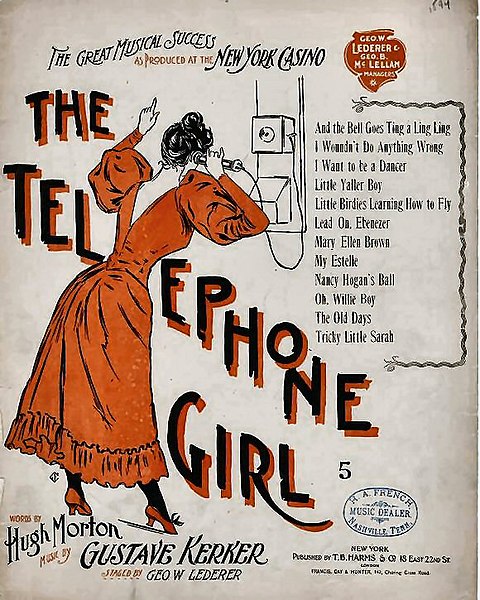
- Hello
- Good morning
- Good afternoon
When an English-speaking library user asks us a question, or we receive a phone call from an English speaker, it is safest to say Hello. Sometimes it is easy to forget whether it is 11:45am and still morning, or 12:05pm, which means the afternoon. If we say good morning and it is already the afternoon, it may not make a good impression. If we wish someone a good afternoon and it is still the morning, it may seem that we are a little confused. So it is easier and safer to just say Hello.
- How may I help you?
This is always a useful phrase to know and say, because it shows the library user or caller that we are happy to help. Be prepared for a reply that we may not understand. One of the great challenges for any Thai speaker of English is to know what to do and say when we do not understand what someone is saying to us in English. Very often, a Thai person will be shy and uncomfortable and stand silently, doing nothing, if whatever the English-speaking library user or caller says is impossible to understand. Reacting with silence is not helpful, and it may also be embarrassing for the staff member. It would be good to prepare more reactions in case we do not understand what the person wants. Remember that when speaking English, it is not necessary to reply in complete sentences. Instead of saying:
- I do not understand what you are saying.
It is faster and easier to say
- Excuse me?
or
- Pardon me?
In the same way, it is not necessary to remember a complete sentence, such as
- Would you please repeat that again more slowly, please?
It is enough to say:
- More slowly, please.
The person will realize that we have not understood and should try to pronounce more clearly. The big challenge is if we still do not understand after something has been repeated, since the library user probably will not want to keep repeating words many times. In this case, it is best to call for assistance if another staff member is working who has good English skills can offer support. Again, it is not required to say a complete sentence to the library user such as:
- Would you please wait a minute while I call my colleague who speaks good English?
It is enough to say:
- One moment, please.
or
Just one moment.
If we raise our index finger while saying One moment, please or Just one moment, it should be clear that we are trying to help and we should have an answer to the question soon.
Sometimes we understand the question asked by the library visitor, but do not know the answer immediately or what to say. Even though we know what the person wants, we are not sure how to help. In that case, a phrase may be helpful such as:
- I am not sure. Let me find out for you.
or
I don’t know. Let me ask for you.
It is important to not just say I am not sure or I don’t know and then stop talking. If we do not also say Let me find out for you or Let me ask for you, the library user or caller may think that we do not know and are not going to try to do anything to help. After we have added the important words that even though we do not know, we will try to help, it should be clear to the visitor that it is worth waiting for a reply. We have understood the problem, but we are not sure how to solve it. The most important message is that we are eager to help, even if we do not understand every question. The library user should wait while the answer is provided by another staff member, whether we call them on the phone or just ask a colleague who is also working at the same time. If the library visitor seems in a big hurry and may not wait, we can suggest:
- Just one moment.
This informs them that we are working to help them, and if they wait a little, they should have an answer to their question. Especially if the English-speaking library user has called on the phone, it can help to remind them that we are working to help them. Sometimes on the phone if callers hear silence, they are not sure whether anything is happening. So for callers on the phone, we can add a sentence such as:
- I will try to help you with that.
This reminds them again that we are doing our best to solve the problem, whatever it may be. In our next group of English phrases for library staff, we will look at some further sample sentences and replies to practical questions and situations.
(All images courtesy of Wikimedia Commons)

